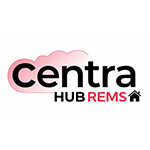Description

Smart Building Apps

Property Shell
Comprehensive Overview: Smart Building Apps vs Property Shell
As of my last update, Property Shell is a platform that specifically caters to the real estate industry, particularly smart buildings. It may offer a range of functions designed to streamline property management and enhance the efficiency of building operations. Here’s a comprehensive overview:
a) Primary Functions and Target Markets
Primary Functions:
-
Property Management: Property Shell likely includes features for managing various aspects of property operations, such as tenant management, lease tracking, and maintenance scheduling.
-
Facilities Management: Tools for monitoring and managing facilities within a building, including energy management, security, and space utilization.
-
Tenant Experience: Apps designed to improve the tenant experience, which might include communication tools, amenity booking, and package delivery notifications.
-
Smart Integrations: Integration with IoT devices for enhanced automation, including smart lighting, climate control, and access systems to optimize energy efficiency and provide a responsive environment.
-
Analytics and Reporting: Data-driven insights and reporting capabilities to help building managers make informed decisions and improve operational efficiency.
Target Markets:
- Commercial Real Estate: Office buildings, mixed-use developments, corporate headquarters.
- Residential Developments: Multi-family housing, apartment complexes, and gated communities.
- Industrial Properties: Warehouses and manufacturing facilities might also benefit from enhanced operational efficiencies.
- Retail Spaces: Shopping centers and individual stores requiring efficient property management.
b) Market Share and User Base
Unfortunately, precise market share and user base figures are not readily available for specific products without proprietary market reports. However, in the context of smart building apps broadly,
- Emerging Trend: Smart buildings are increasingly adopting digital solutions for operational efficiency and sustainability, driving the growth of these applications.
- Competition: The market likely comprises many players offering products with varying features, from multinational corporations to smaller specialized providers.
- Growth Potential: The smart building applications market is poised for growth due to increasing urbanization, technology innovation, and emphasis on energy efficiency.
c) Key Differentiating Factors
When comparing smart building apps like Property Shell, differentiation tends to be based on the following:
-
Integration Capabilities: Some products offer more seamless integration with existing building management systems and IoT devices than others.
-
User Experience: Differences in user interface design and user experience can significantly impact the adoption and effectiveness of the platform.
-
Scalability: The ability to adapt to different types and scales of properties—from single buildings to large, multi-property portfolios.
-
Customization and Flexibility: Options for tailoring the platform to meet the specific needs of different buildings and property managers.
-
Data and Analytics: The depth and usefulness of data analytics, reporting features, and predictive maintenance capabilities are crucial for many users.
-
Price and Cost-Effectiveness: Pricing models can vary, influencing which products are more accessible or attractive to certain segments of the market.
-
Sustainability Features: Capabilities related to energy efficiency, carbon footprint monitoring, and sustainability can also differentiate platforms in an increasingly eco-conscious market.
Products like Property Shell possibly distinguish themselves with unique selling propositions based on such factors, but specifics would require examination of individual product details and user reviews.
Contact Info

Year founded :
2008
Not Available
Not Available
Canada
Not Available

Year founded :
Not Available
+61 3 8844 4844
Not Available
Australia
http://www.linkedin.com/company/propertyshell
Feature Similarity Breakdown: Smart Building Apps, Property Shell
When evaluating Smart Building Apps such as Property Shell, it's important to explore their core features, user interface designs, and any unique offerings that distinguish them from each other. Here's a breakdown based on typical offerings in the smart building application market:
a) Core Features in Common
-
Energy Management:
- Monitoring and optimization of energy consumption.
- Integration with renewable energy sources.
-
Security Systems:
- Integration with CCTV and alarm systems.
- Access control management for buildings.
-
HVAC Control:
- Automated heating, ventilation, and air conditioning management.
-
Lighting Control:
- Automated lighting systems using motion sensors and scheduling.
-
Data Analytics & Reporting:
- Dashboards for real-time monitoring of building performance.
- Routine and custom reporting capabilities.
-
Occupancy Management:
- Solutions to analyze space utilization.
- Hot-desking and flexible workspace management.
-
IoT Integration:
- Seamless integration with Internet of Things devices for enhanced functionality.
-
Remote Access & Mobile App:
- Mobile applications for remote monitoring and control.
b) User Interface Comparison
-
Design Aesthetics: Most Smart Building apps, including Property Shell, focus on a sleek, modern design emphasizing usability. Interfaces usually feature dashboards with key metrics accessible at a glance.
-
User Experience (UX): Both products likely emphasize intuitive navigation. They cater to diverse users, from building managers to tenants, ensuring easy access to different features.
-
Customization: There is often a high level of customization in terms of dashboard layouts and reports, although the flexibility and ease of customization can vary.
c) Unique Features
While many features overlap in the Smart Building App market, specific products may offer unique features to differentiate themselves:
-
Property Shell might offer unique integrations with third-party applications or systems, allowing for enhanced customization specific to certain property types or industries.
-
Advanced Predictive Analytics: Some apps offer advanced machine learning-based insights that predict maintenance needs before issues arise, which could be unique to one app.
-
Tenant Engagement Tools: Features such as a tenant portal or app that allows for direct communication, feedback processing, or community-building activities can set an app apart.
-
Sustainability Metrics: Proprietary algorithms that offer deeper insights into sustainability and carbon footprint may be unique features of one app.
-
AR/VR Support: Integration with augmented or virtual reality for property tours or maintenance guidance can be a unique value proposition.
-
Blockchain Technology: For enhanced security and transparency in property transactions and management, some apps might utilize blockchain, setting them apart.
In conclusion, while core features are often similar across Smart Building Apps like Property Shell, differences often lie in user interface design nuances and unique functionalities that cater to specific market needs or innovate beyond the basics. For a more detailed analysis, a side-by-side comparison of specific products would be beneficial.
Features

Facility Management
Occupant Comfort
Energy Management
Security & Access Control

Property Management
Financial Management
Reporting and Analytics
Communication Tools
Best Fit Use Cases: Smart Building Apps, Property Shell
Smart Building Apps and Property Shell are digital platforms designed to optimize the management and operations of buildings and properties. Each serves distinct use cases and caters to different needs within the property management and real estate industries. Below, we'll explore the best fit use cases for each platform:
Smart Building Apps
a) Best Fit Use Cases
Smart Building Apps are ideally suited for:
-
Large Commercial Buildings: These apps are great for managing complex infrastructure, optimizing energy consumption, and enhancing tenant experiences in skyscrapers, business complexes, and multi-use commercial properties.
-
Corporate Campuses: Suitable for large campuses with multiple buildings where efficient space utilization, security, and facility management are critical.
-
Smart Cities: As cities become more connected, Smart Building Apps can help manage municipal buildings by integrating IoT devices for efficient resource management and improved citizen services.
-
Healthcare Facilities: Hospitals and large healthcare institutions can benefit from smart apps for environmental monitoring, asset tracking, and patient management.
-
Educational Institutions: Universities and large schools can leverage these apps for efficient space booking, event management, and ensuring optimal learning environments.
d) Catering to Different Industries and Company Sizes
Smart Building Apps are flexible and scalable, suitable for medium to large enterprises and institutions across verticals like healthcare, education, corporate real estate, and municipal governments. The scalability ensures they can handle a single building or multiple properties across different locations. Their advanced features cater to industries with specific needs for security, environmental control, and facility optimization.
Property Shell
b) Best Fit Use Cases
Property Shell is optimal for:
-
Real Estate Developers and Agents: It provides tools for managing property listings, customer interactions, and sales processes efficiently.
-
Property Management Companies: Ideal for firms managing multiple residential properties, dealing with tenant communications, maintenance requests, and lease processing.
-
Small to Medium-sized Property Owners: Independent landlords or small property companies can use it for streamlined property management and tenant relations without needing extensive custom solutions.
-
Retail Spaces: Useful for managing tenant relationships, lease agreements, and space utilization within shopping centers or malls.
d) Catering to Different Industries and Company Sizes
Property Shell is best suited for small to medium-sized businesses in the real estate and property management sector. It offers a cost-effective solution with essential features tailored to property transactions, tenant management, and customer service. This makes it particularly attractive to startups, independent realtors, and smaller property management firms that need robust yet affordable solutions.
In summary, Smart Building Apps are best suited for more extensive infrastructure needs with a focus on smart integration and automation, while Property Shell caters to real estate management and transactions for companies looking to streamline their property-related operations. Each product serves its niche, with varying emphasis on technology integration, user management, and industry application.
Pricing

Pricing Not Available

Pricing Not Available
Metrics History
Metrics History
Comparing teamSize across companies
Conclusion & Final Verdict: Smart Building Apps vs Property Shell
Conclusion and Final Verdict for Smart Building Apps vs. Property Shell
To determine which product offers the best overall value between Smart Building Apps and Property Shell, we need to evaluate the strengths and weaknesses of each product and make recommendations based on specific user needs.
Evaluation
A) Best Overall Value
Both Smart Building Apps and Property Shell have unique advantages that cater to different aspects of the smart building ecosystem. Therefore, the best overall value is contingent upon the specific needs and priorities of the user.
-
Smart Building Apps: This product generally provides comprehensive features focused on sustainability, energy efficiency, and advanced integration with IoT devices. It is ideal for users looking to maximize operational efficiency and enhance the sustainability credentials of their buildings.
-
Property Shell: This product excels in property management, tenant engagement, and ease of use. It is particularly suitable for users who prioritize tenant satisfaction and seamless property management operations.
Based on these strengths, if sustainability and energy management are the top priorities, Smart Building Apps likely offer the best value. Conversely, for property management and tenant-focused features, Property Shell is the superior choice.
B) Pros and Cons
Smart Building Apps:
- Pros:
- Advanced sustainability and energy management features
- Robust IoT device integration
- Comprehensive analytics and reporting tools
- Customizability for complex building operations
- Cons:
- Potentially steep learning curve for non-technical users
- Higher upfront cost and integration time
- May require more extensive initial setup and customization
Property Shell:
- Pros:
- User-friendly interface and easy deployment
- Strong emphasis on tenant engagement and communication
- Efficient property management tools
- Affordable pricing with flexible plans
- Cons:
- Less focus on advanced sustainability features
- Limited customization options
- Potential for fewer integrations compared to more complex systems
C) Recommendations
-
For users focused on sustainability and energy efficiency: Smart Building Apps provides the necessary tools and integration capabilities to achieve significant energy savings and enhanced building performance. Users should be prepared for a steeper learning curve and potentially higher costs.
-
For property managers emphasizing tenant experience and streamlined management: Property Shell’s intuitive design and tenant-focused features make it an excellent choice. It offers a cost-effective solution for those who desire easy implementation with minimal technical complexity.
In making a decision, users should evaluate their primary needs, budget constraints, and desired outcomes. Those prioritizing sustainability and efficiency might lean towards Smart Building Apps, while those focused on tenant satisfaction and property management efficiency might prefer Property Shell. Considering a demo or trial run of both products, if available, is advisable to experience firsthand how each product aligns with the user's goals and operational structure.
Add to compare
Add similar companies




